
Interviews with Entrepreneurs
From a player to an entrepreneur at the age of 19! Leading the "industrialization of e-sports" at the forefront of the industry
#esports
#Entertainment
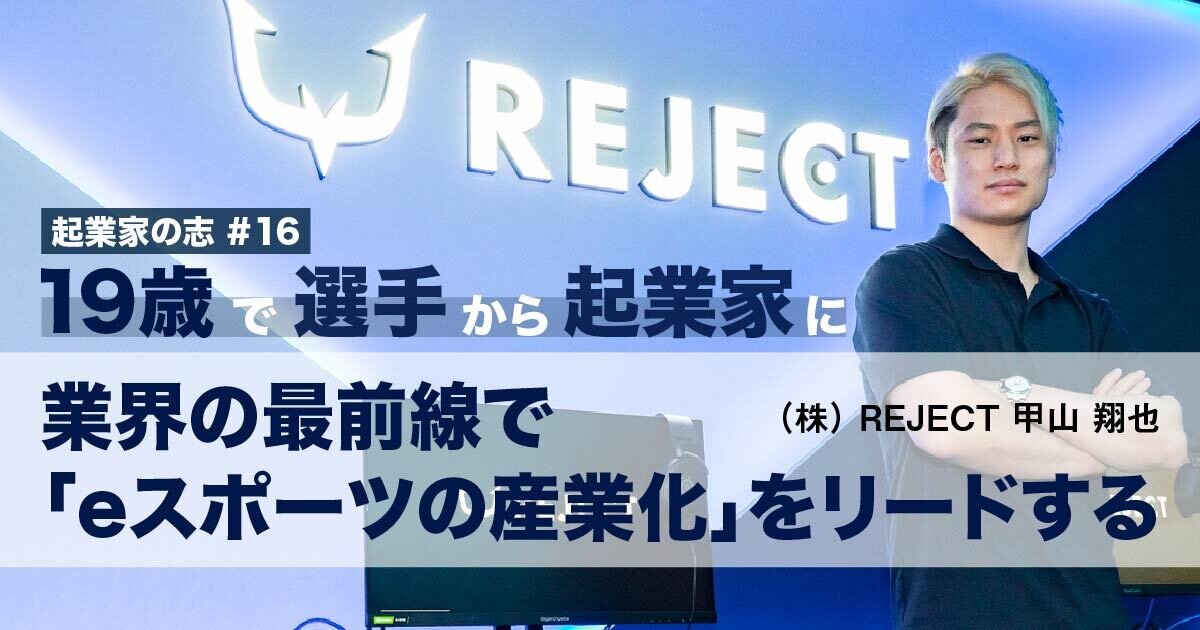
"Entrepreneurial aspirations" to hear the background of deciding to start a business, the conflict until the business gets on track, and the desire to realize through the business. In the 16th meeting, we interviewed Mr. Shoya Koyama, CEO of REJECT Inc., which operates the professional e-sports team "REJECT".
REJECT Inc.
CEOShoya Koyama
Born in Osaka in 1999. Started activities as an e-sports player at the age of 10 and left many achievements. In December 2018, when he was a second year student at Doshisha University, he established his predecessor, CYLOOK Co., Ltd. At the same time, he retires as a player and concentrates on team management. In March 2019, we entered mobile e-sports, which was still in its infancy at that time, and became a powerful team. In April 2021, we raised 360 million yen as Series A and changed the company name to "REJECT Inc." In September of the same year, the new office "REJECT GAMING BASE" was opened. Taking advantage of his experience as a player, he is still actively scouting for players.
[What's REJECT Inc.]
In addition to the professional e-sports team "REJECT" management business and apparel business, the e-sports tournament management business, e-sports education business, etc. Developing new businesses such as e-sports human resources business and e-sports consulting business. Through all economic activities through e-sports, we will provide "e-sports experience that colors life" to everyone in the world and create an industry that we can be proud of in the world.
Portfolio
A turbulent story hidden behind student entrepreneurship
-Mr. Koyama, who turned from an esports player to an entrepreneur, when did you first meet the game?
I started playing so-called online games in the e-sports world when I was in the fifth grade of elementary school. A close friend from kindergarten introduced me to a game called "Counter-Strike", and I used to talk on Skype every day and play games together. I've been learning karate for a long time and I've been strong, but I was bullied when I was in elementary school, probably because of my strong sense of justice. That's why I was always saved by the game, and it was fun to be able to do something together while talking with my friends online. Write down your tactics in your notebook and get up early in the morning to play games so your parents don't get angry. As I spent these days, my skills gradually improved, and after I entered junior high school, I started to participate in competitions.
-Around that time, did you start aiming to become a professional player?
Actually, my parents' house was a factory in Higashi-Osaka, and one of our three brothers was supposed to succeed my father. Since my brother was a bandman, I had a feeling that I would take over from long ago, so I entered university and participated in business contests to study management. So at first I didn't intend to go on the path of professional esports.
Do what you want to do before you take over the family business. With that in mind, I resumed playing games in earnest during my college years, after taking a break due to exams. At that time, there was a popular FPS (First Person Shooter) called "Counter-Strike Online 2", but I participated in two of the three official offline tournaments and won both. I have also won the battle royale game tournament called "PUBG (PLAYERUNKNOWN'S BATTLEGROUNDS)".
It was around that time that I received an offer, "Why don't you try as a professional player?" The owner, who had a dream of having a professional team, asked me, "I want you to create a team with PUBG, led by Mr. Koyama." The monthly salary is 100,000 yen per person. At that time, even if I won the tournament, I usually got only in-game money, so I was happy to get a monthly salary and continue for a long time, so I made a team of 4 people by gathering strong members. That is the predecessor team of "REJECT".
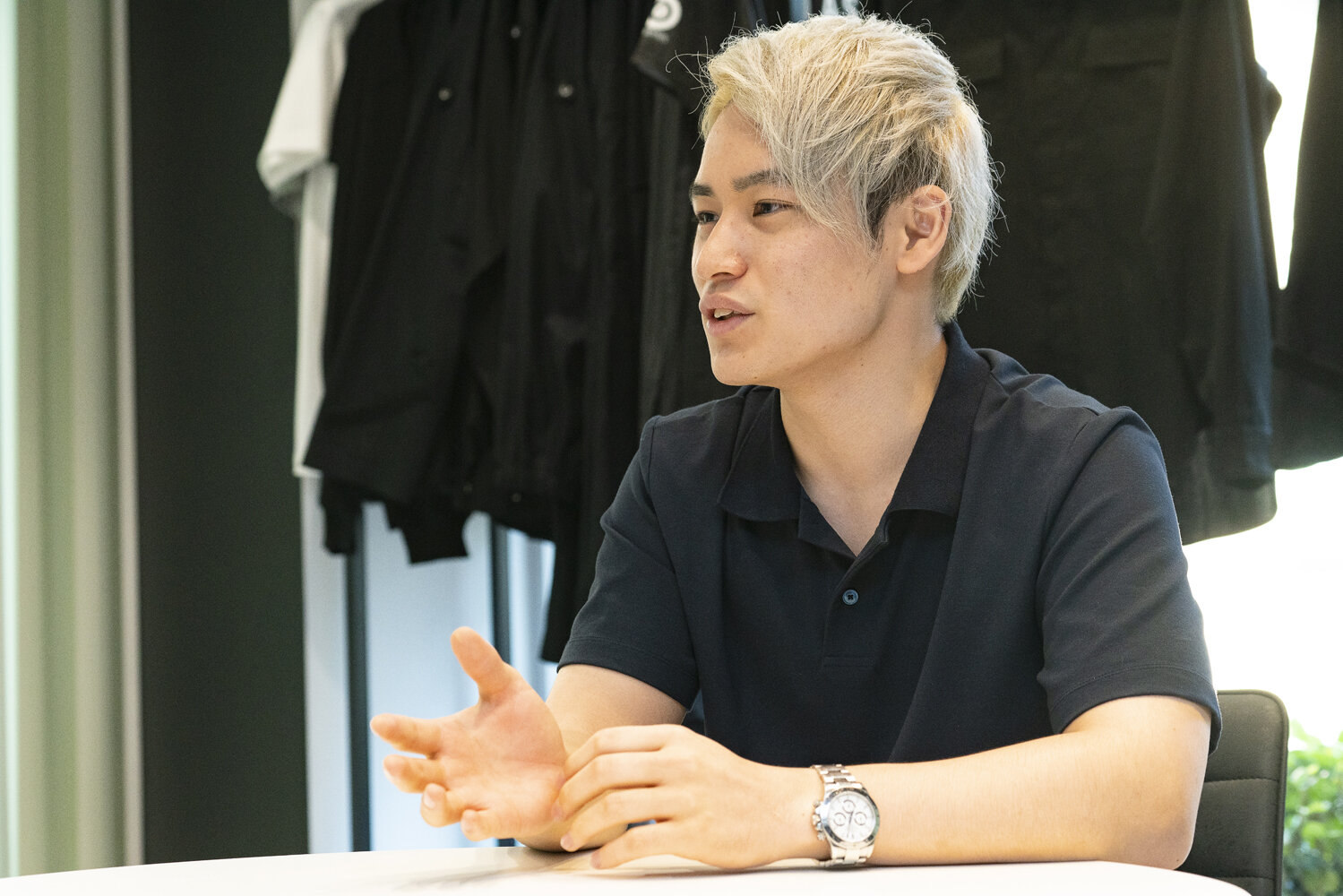
-Currently, you are retired as a player. What made you decide to shift from a player to a management side?
The owner disappeared just two months after the team was launched. At that time, there was almost no precedent for monetization of professional esports teams, and I think that the operation was stalled. The team members I invited were all the people who quit their part-time jobs and gathered to spend their lives in the game. I fell into a situation where I couldn't pay the salary I had promised, and I was blamed terribly.
I had no choice but to represent and pay their salary. With that in mind, I established a company at the age of 19 in 2018 without any knowledge of team management. I asked the players to "start from 10,000 yen a month", and first of all, in order to earn money, I undertook the work of HP production by utilizing the web skills I had been studying for a long time. At first, the players were going to continue, but it wasn't very compatible, but the situation was incompatible, so the players decided to retire.
-It was a tough decision, wasn't it? Did your parents disagree?
I was greatly opposed. I think it's natural because I was supposed to take over the house, but I started a student business, and it was an area unfamiliar to the parent generation of e-sports. However, I desperately persuaded him to forgive me in the end, and my father, who is a senior businessman, gave me reassuring words of encouragement: "Try your hand at it, we'll support you," and "Your employees and friends are your life, don't think you can do anything on your own." Nowadays, he watches the tournaments we play every time, and he is very familiar with games and players (laughs).
Turn a negative industry into a positive
-What kind of path have you taken from there to commercializing the e-sports team?
I only knew that the professional team had sponsors, so I visited a company in Tokyo without appointment to get sponsors, and said, "I have a track record of ○ in Japan!" "There are ○ followers! I was doing a childish business. Among them, the first person to decide on sponsorship was President Aoki of Adjust Co., Ltd. (currently Strander Inc.), which operates IT-related businesses.
I remember seeing the president's SNS saying "I want to be a sponsor of an e-sports team" and visiting the Shinjuku office while being nervous with the powerpo materials in my hands. Anyway, when I gave a high-energy presentation, he decided the contract on the spot, and he carefully taught me the know-how of fan club site construction, operation support, team management and monetization. It feels like I've moved forward step by step from there.
-Are there any events that were a turning point for your team?
You have entered the mobile version of PUBG, "PUBG MOBILE". The world championships will be held at a stage where the professional team has hardly intervened, and I thought it was an opportunity to compete. In the esports area at that time, there were quite a few players who were strong enough to think that they were in the realm of God, but because of their bad manners, they couldn't hear from the major teams. I thought, "The time will come when really strong people will be evaluated," so I decided to persuade 10 such players in order of strength and have them join the team. I was criticized a lot for putting a player with bad manners into the professional team, and I scolded the player many times, but the domestic tournament that I faced was a wonderful victory. I managed to convince the players' parents to participate in the world championships in Germany. By the way, they are now growing up to be able to participate in the league of 300 million yen a year.
-What was your impression of the overseas e-sports world when you first participated in the world championships?
It was completely different from Japan. At that time, it was still said to be "gamer-dumb" in Japan, but in Germany, the shuttle car for athletes was Benz, and luxury hotels and meals were all free during the stay. Advertisements for the tournament were posted on buses and trains running through the city, famous music producers announced new songs at the tournament, and all overseas players were sponsored by large companies. After that, I participated in tournaments such as Taiwan and Saudi Arabia, but the amount of prize money and influence were all different from Japan, and I was keenly aware of the difference with ourselves. On the other hand, I still felt a chance in Japan of Blue Ocean. "If you win first place in Japan, you can go to the world."
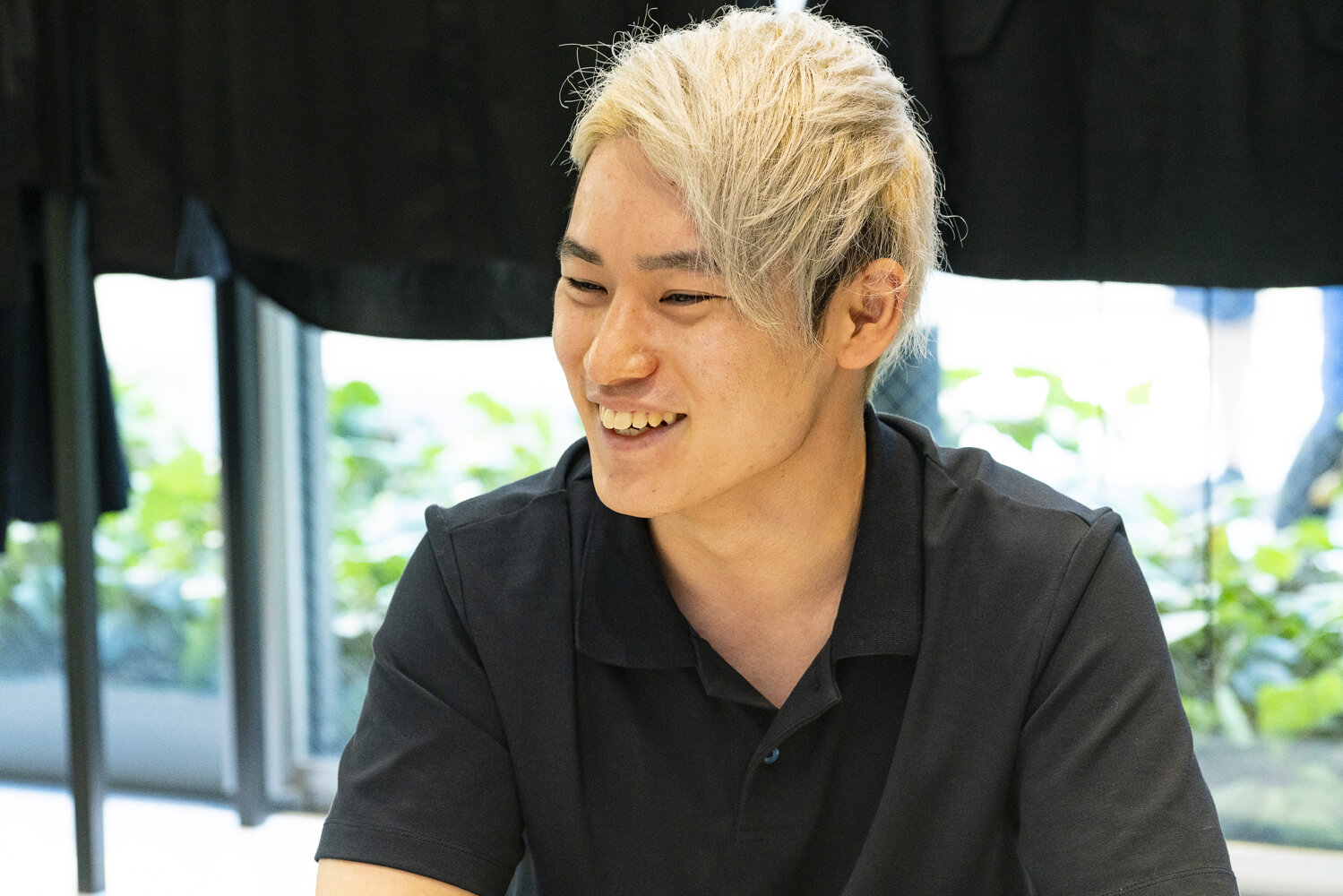
-Currently, you are retired as a player. What made you decide to shift from a player to a management side?
The owner disappeared just two months after the team was launched. At that time, there was almost no precedent for monetization of professional esports teams, and I think that the operation was stalled. The team members I invited were all the people who quit their part-time jobs and gathered to spend their lives in the game. I fell into a situation where I couldn't pay the salary I had promised, and I was blamed terribly.
I had no choice but to represent and pay their salary. With that in mind, I established a company at the age of 19 in 2018 without any knowledge of team management. I asked the players to "start from 10,000 yen a month", and first of all, in order to earn money, I undertook the work of HP production by utilizing the web skills I had been studying for a long time. At first, the players were going to continue, but it wasn't very compatible, but the situation was incompatible, so the players decided to retire.
-It was a tough decision, wasn't it? Did your parents disagree?
I was greatly opposed. I think it's natural because I was supposed to take over the house, but I started a student business, and it was an area unfamiliar to the parent generation of e-sports. However, I desperately persuaded him to forgive me in the end, and my father, who is a senior businessman, gave me reassuring words of encouragement: "Try your hand at it, we'll support you," and "Your employees and friends are your life, don't think you can do anything on your own." Nowadays, he watches the tournaments we play every time, and he is very familiar with games and players (laughs).
Turn a negative industry into a positive
-What kind of path have you taken from there to commercializing the e-sports team?
I only knew that the professional team had sponsors, so I visited a company in Tokyo without appointment to get sponsors, and said, "I have a track record of ○ in Japan!" "There are ○ followers! I was doing a childish business. Among them, the first person to decide on sponsorship was President Aoki of Adjust Co., Ltd. (currently Strander Inc.), which operates IT-related businesses.
I remember seeing the president's SNS saying "I want to be a sponsor of an e-sports team" and visiting the Shinjuku office while being nervous with the powerpo materials in my hands. Anyway, when I gave a high-energy presentation, he decided the contract on the spot, and he carefully taught me the know-how of fan club site construction, operation support, team management and monetization. It feels like I've moved forward step by step from there.
-Are there any events that were a turning point for your team?
You have entered the mobile version of PUBG, "PUBG MOBILE". The world championships will be held at a stage where the professional team has hardly intervened, and I thought it was an opportunity to compete. In the esports area at that time, there were quite a few players who were strong enough to think that they were in the realm of God, but because of their bad manners, they couldn't hear from the major teams. I thought, "The time will come when really strong people will be evaluated," so I decided to persuade 10 such players in order of strength and have them join the team. I was criticized a lot for putting a player with bad manners into the professional team, and I scolded the player many times, but the domestic tournament that I faced was a wonderful victory. I managed to convince the players' parents to participate in the world championships in Germany. By the way, they are now growing up to be able to participate in the league of 300 million yen a year.
-What was your impression of the overseas e-sports world when you first participated in the world championships?
It was completely different from Japan. At that time, it was still said to be "gamer-dumb" in Japan, but in Germany, the shuttle car for athletes was Benz, and luxury hotels and meals were all free during the stay. Advertisements for the tournament were posted on buses and trains running through the city, famous music producers announced new songs at the tournament, and all overseas players were sponsored by large companies. After that, I participated in tournaments such as Taiwan and Saudi Arabia, but the amount of prize money and influence were all different from Japan, and I was keenly aware of the difference with ourselves. On the other hand, I still felt a chance in Japan of Blue Ocean. "If you win first place in Japan, you can go to the world."
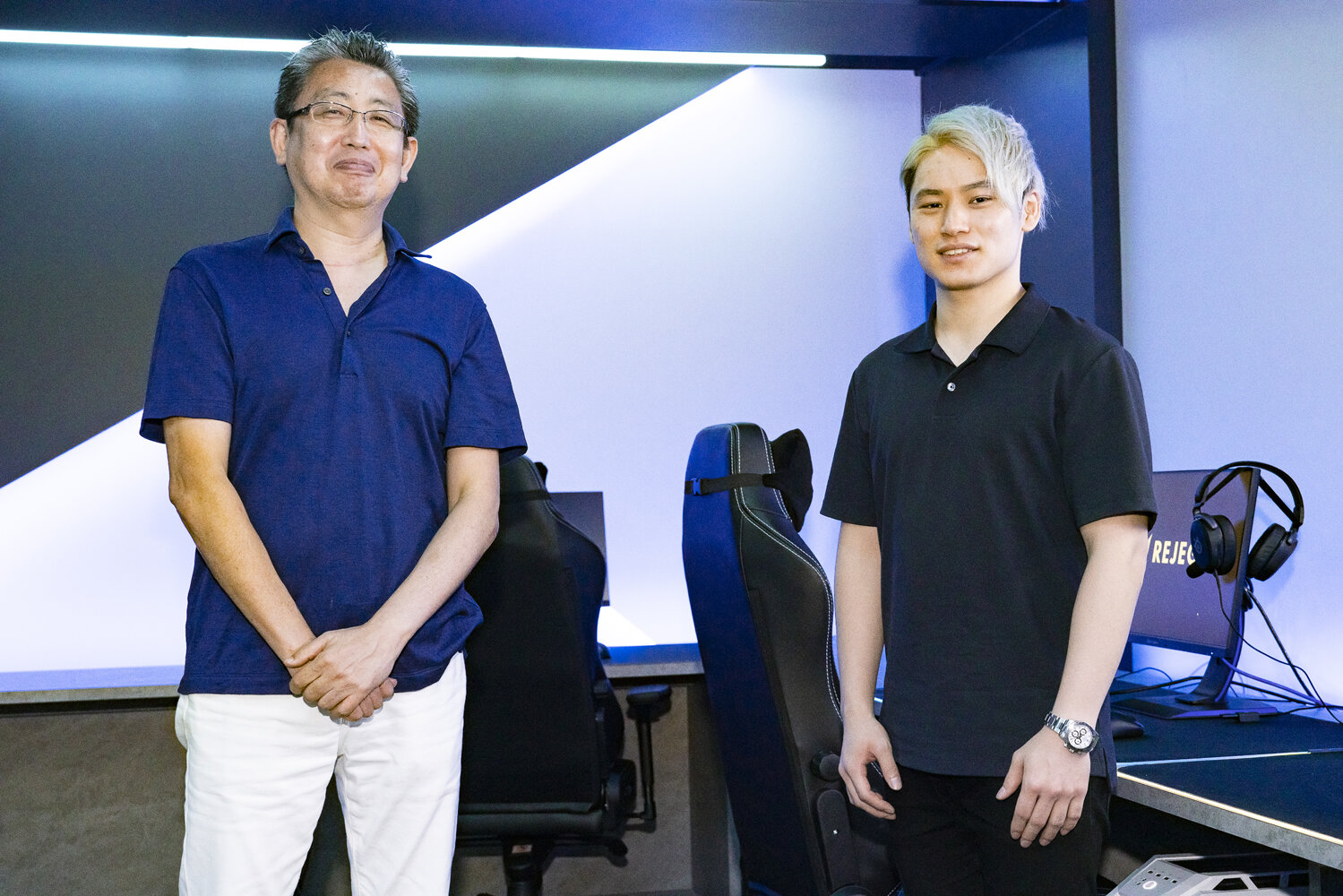
Make a challenging choice when in doubt
-Please tell us about the future outlook for the company.
As a team, we aim to win the world championship for the first time in Japan with a shooting title with the support of as many people as possible. As a business, we are considering business development such as a hybrid type of athlete team and MCN (multi-channel network), such as distributing athletes' practice scenes. In addition to the recently strengthened sales of apparel and goods, we would like to enter the sales of in-game skins.
The long-term outlook is the industrialization of e-sports. 2000 schools, more than Koshien, have participated in the e-sports high school tournament, and professional e-sports players are ranked second in the vocational rankings that junior high school students want to be. While it is becoming more popular, there are not enough stages to fulfill its dreams and passions. I want to make e-sports more routine than a temporary boom, grow it as an industry, and make children's dreams come true. And I would like to accelerate the growth of the team so that "REJECT" can continue to be the centerpiece.
-Did your ambitions change compared to when you first started your business?
I had always wanted to "turn a negative industry into a positive one" and "industrialize e-sports," but somewhere in my head I thought "someone would do it." However, there aren't many companies like that, let alone young entrepreneurs like me. We are at the forefront of the industry, and a strong sense of mission that only we can do is driving me now.
The negative image of the industry has changed considerably in the last few years. Therefore, the corporate message was changed from "Not Just A Game" to "Road to Clutch". From now on, we will aim to realize our ambitions on a new stage.
-Finally, do you have a message for young people who want to start a business?
I think there are many times when you are at a loss as to which path to take in the future. At that time, I dared to choose the "difficult" way instead of the easy way. Looking back now, there are many things I couldn't get without choosing that path, and I think it was definitely more interesting than going on an easy path. Whether or not you can make challenging choices when in doubt is the key to living an entrepreneurial life that you will not regret.
Related Articles
-
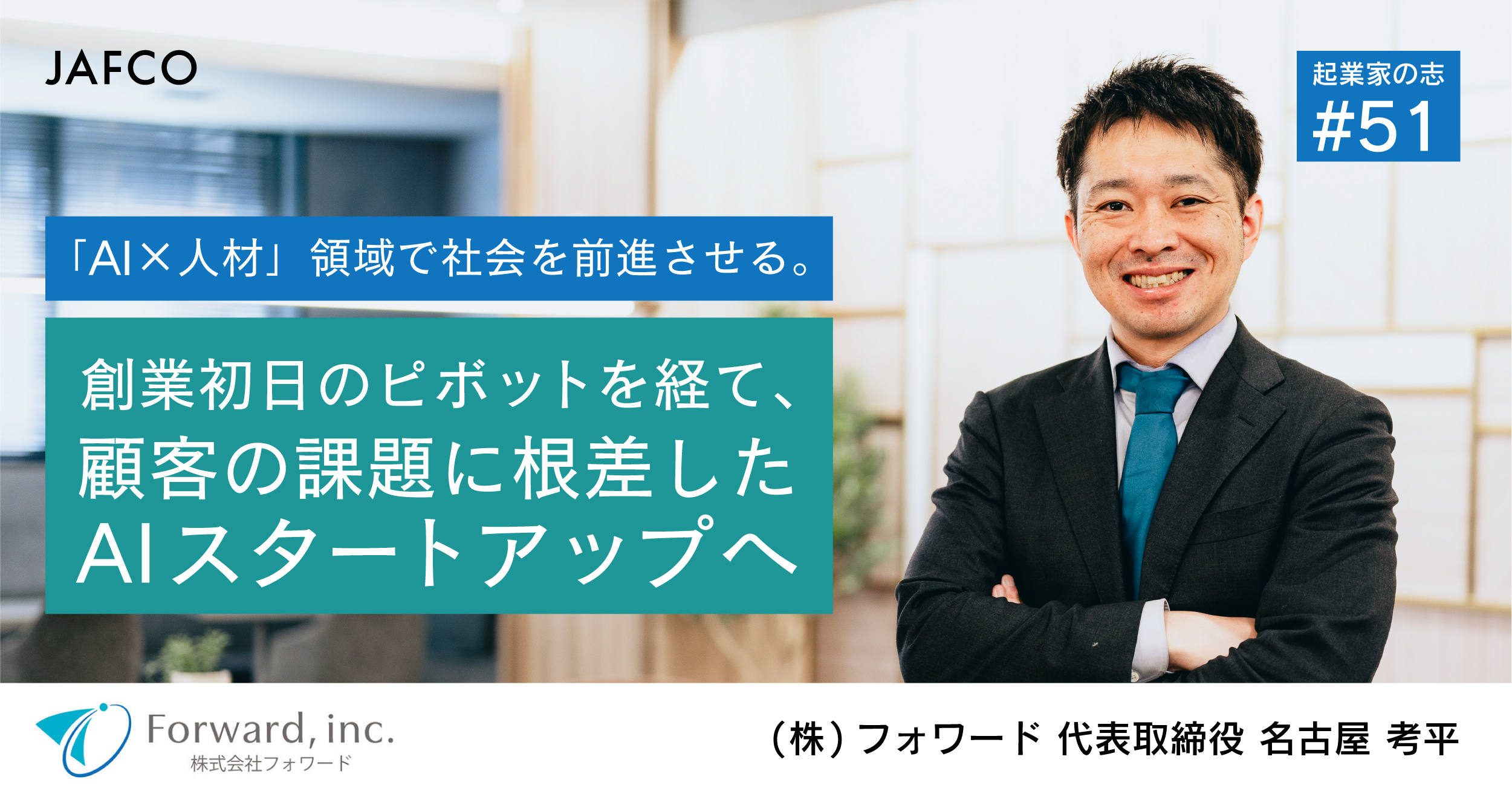
Interviews with Entrepreneurs
Advancing Society Through “AI × Talent”: AI Startup Grounded in Real Customer Challenges
-
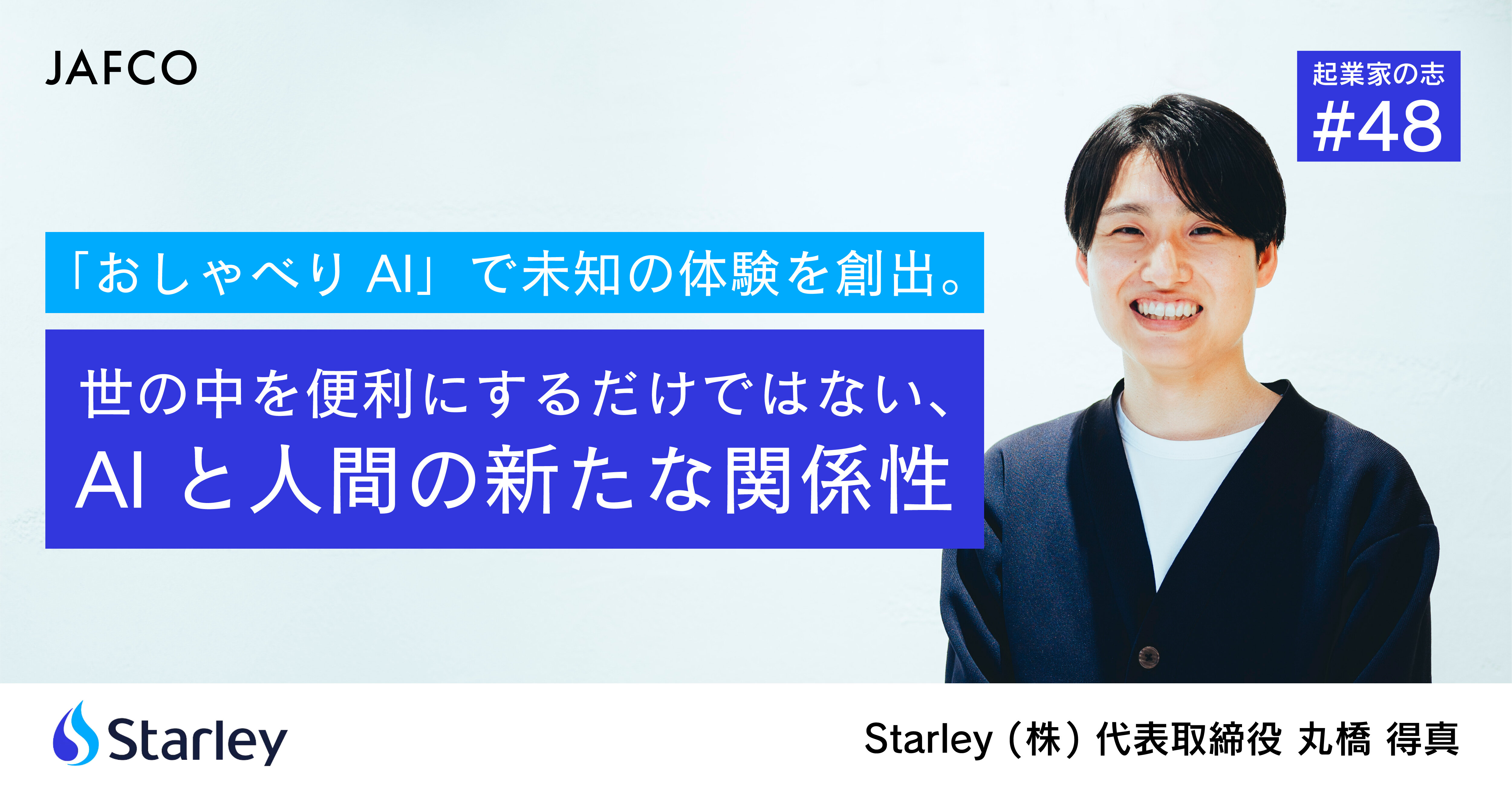
Interviews with Entrepreneurs
Creating New Experiences Through “Chatting AI”: A New Relationship Between Humans and AI That Goes Beyond Convenience
-
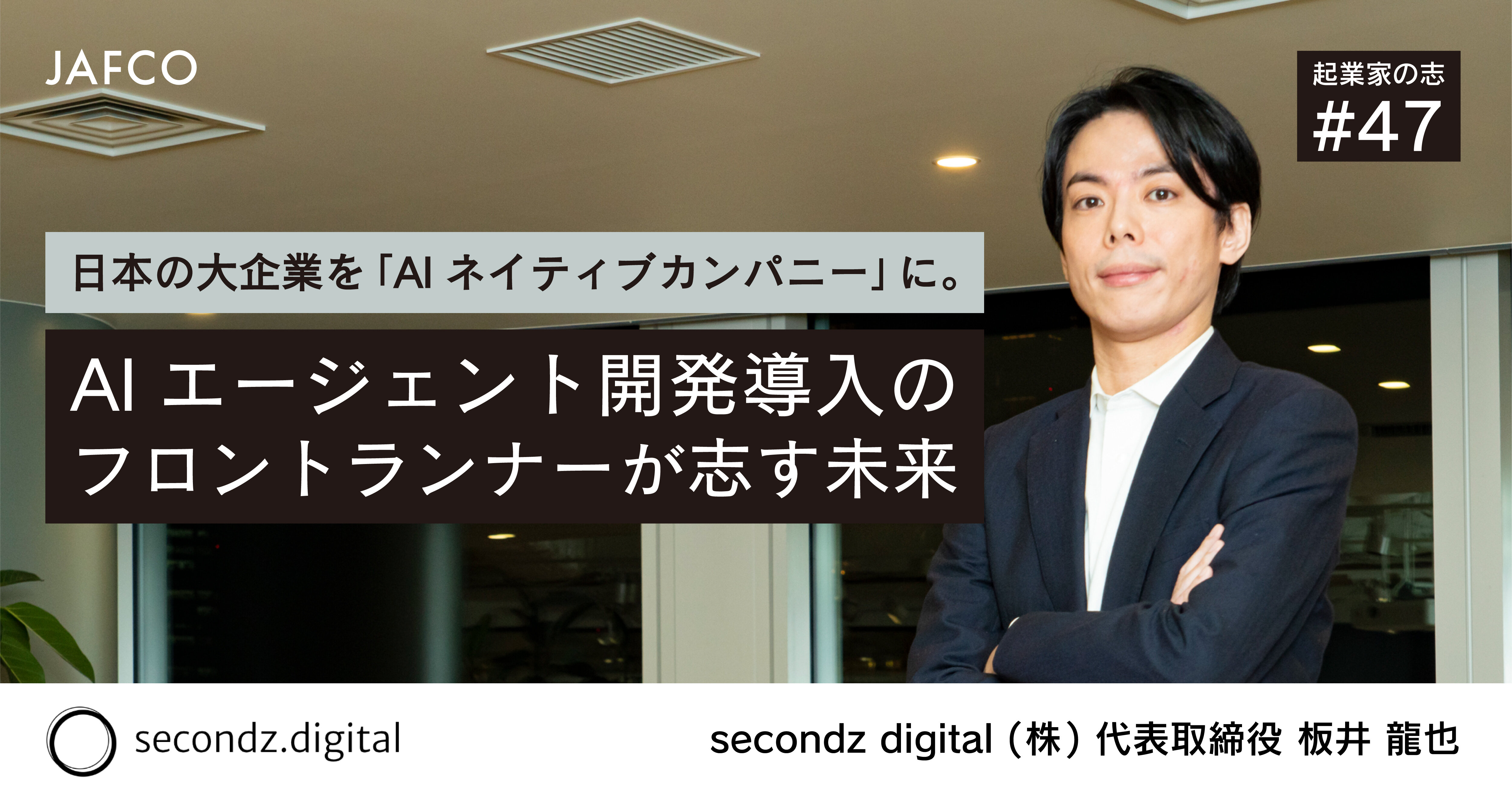
Interviews with Entrepreneurs
Transforming Japan's Major Corporations into "AI-Native Companies": A Vision from the Frontline of AI Agent Development
-
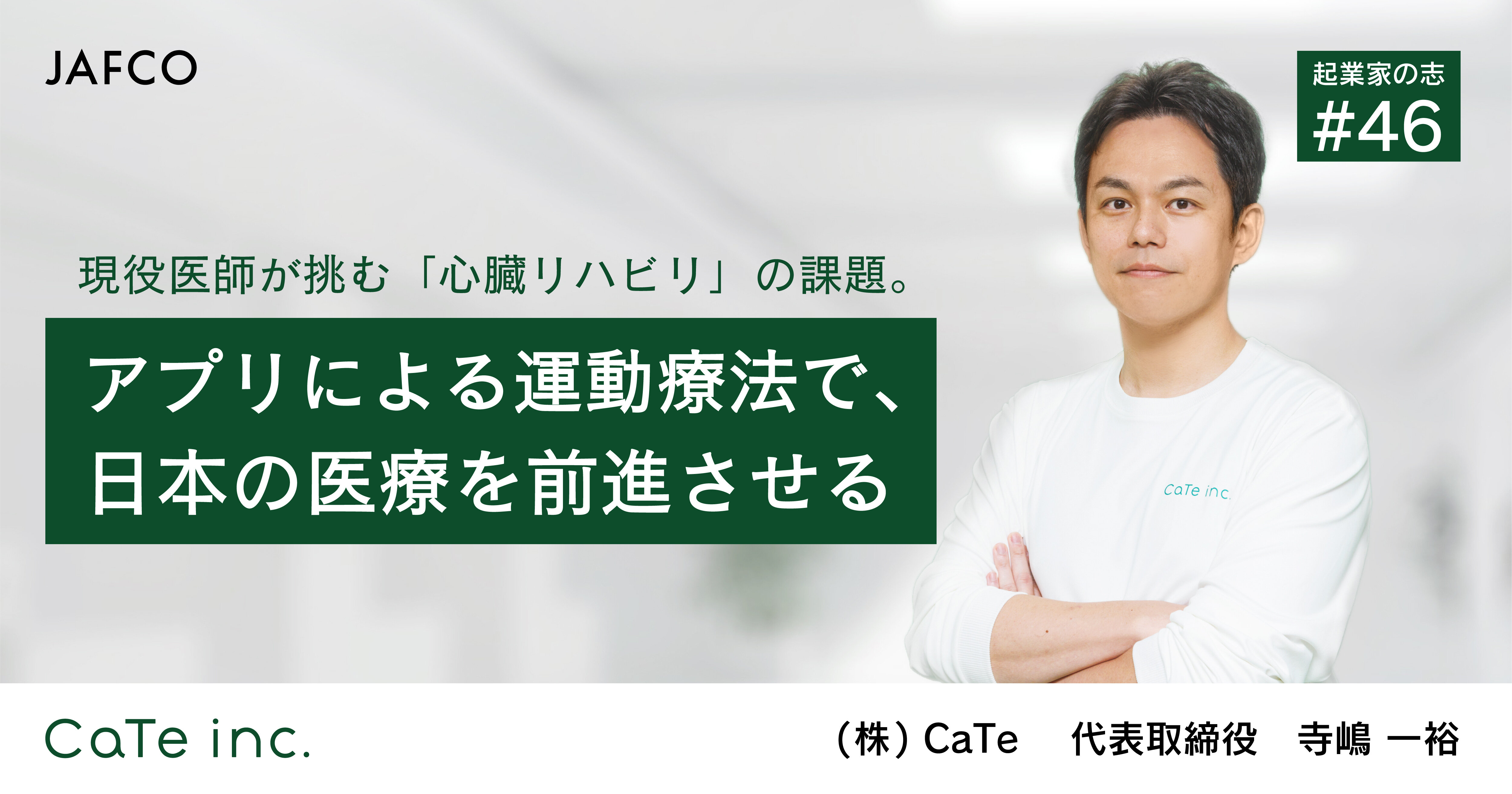
Interviews with Entrepreneurs
A Practicing Doctor Tackling the Challenges of Cardiac Rehabilitation: Advancing Japanese Medicine Through App-Based Exercise Therapy
-
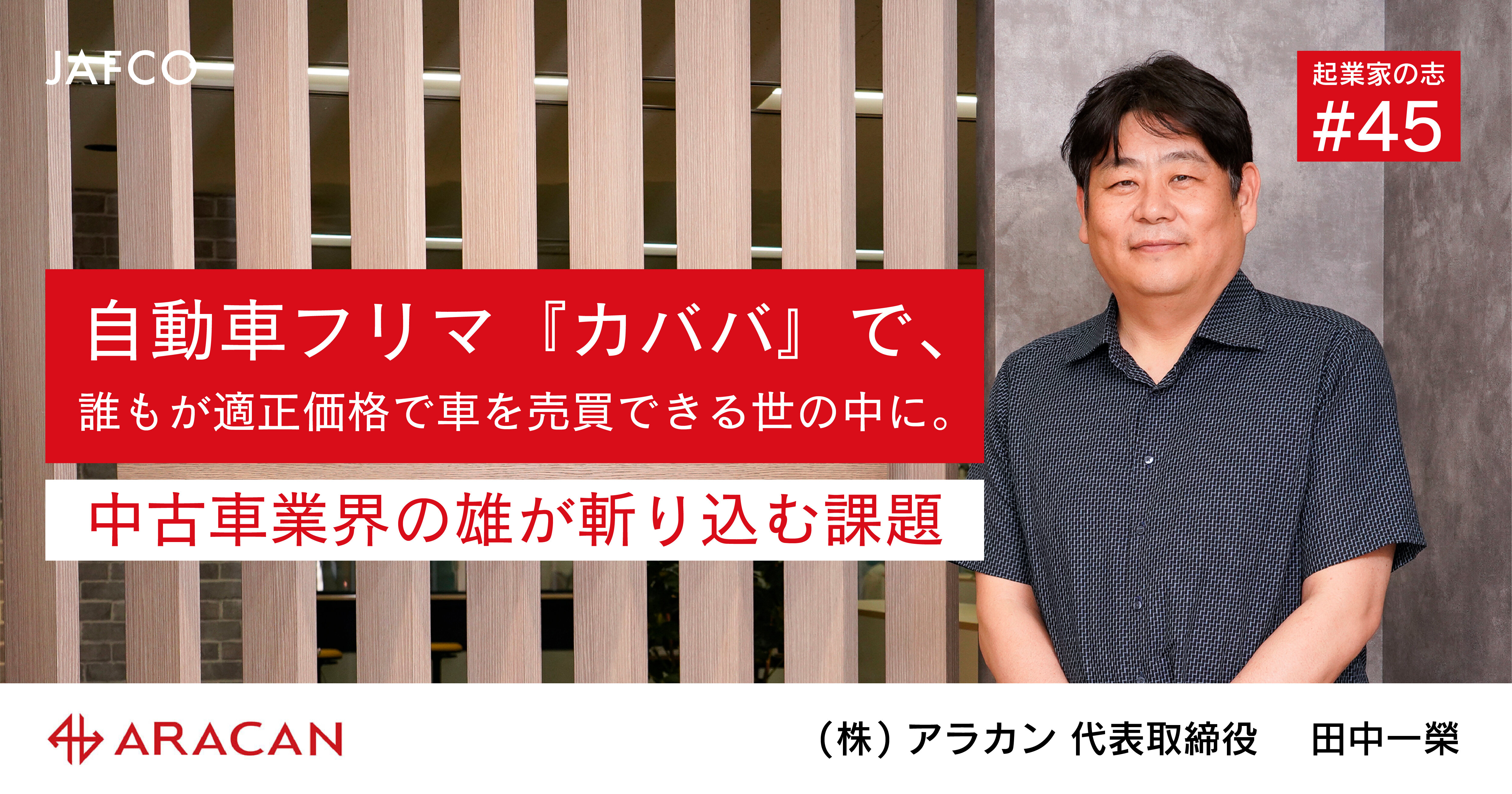
Interviews with Entrepreneurs
Fair Pricing for All: Industry Expert Aims to Transform Used Car Market with Auto Marketplace Kababa